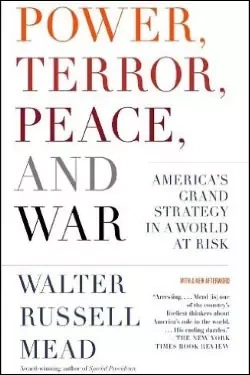
Power, Terror, Peace, and War
America's Grand Strategy in a World at Risk

- Book
- Foreign policy analyses written by CFR fellows and published by the trade presses, academic presses, or the Council on Foreign Relations Press.
In Power, Terror, Peace, and War, Mead—one of the most original writers on U.S. foreign policy—provides a fascinating and timely account of the Bush administration's foreign policy and its current grand strategy for the world. He analyzes America's historical approach to the world, which he describes as not perfect but reasonably moral and reasonably practical. President Bush, according to Mead, is often strategically right but tactically at fault while he attempts to lead a divided nation—and a divided coalition of allies—in a dangerous struggle against ruthless enemies.
Mead examines the collapse of Washington's relations with some of its oldest allies and explains why the Bush administration's words and actions have ignited the most acrimonious domestic political battles over foreign policy since the Vietnam War. Closing with a rigorous assessment of both Bush and his critics, Mead describes the urgent steps the United States must take, lest casualties in the war on terror mount and the war itself spin out of control. He proposes a new approach to the war to rebuild domestic and international support for a tough antiterror policy, outlines a new initiative for the Israeli-Palestinian dispute, and recommends sweeping changes for reforming international institutions, including the United Nations Security Council.
More on:
Covering many of the challenges facing the United States—from despair and decay in the Arab world to the collapse of civilized life in broad reaches of Africa and looming disasters in Central Asia—Power, Terror, Peace, and War is a clear, concise guide to some of the most pressing issues before us today.
A Council on Foreign Relations Book
More on:
 Online Store
Online Store